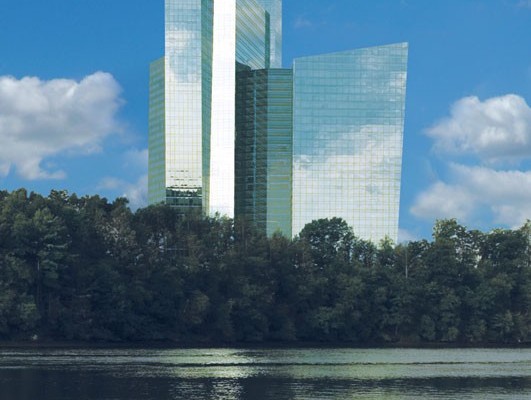Connecticut is on its way to its third casino, after a development agreement was reached between East Windsor officials and representatives of the joint Mohegan-Mashantucket Pequot company, MMCT Venture LLC. There are two potential locations for the casino project: East Windsor or Windsor Locks. Proponents for a third casino in Connecticut say that it is imperative that the state keep up with competition brought by neighboring states to CT, especially since the new MGM Resorts International Casino in Springfield is due to open late next year in Massachusetts. It is also estimated that the casino will generate 1,700 positions for the state’s construction industry, and the same number of permanent positions after the opening of the casino.
“Listening to and speaking with each of the communities has been a top priority for both tribes,” noted a spokesperson for MMCT Venture, Andrew Doba. “That’s why the we held community forums, and that’s why today’s vote is so gratifying. We thank the Board of Selectmen for standing in support of this effort to save Connecticut jobs, and look forward to announcing a final site in the coming days.”
East Windsor’s Board of Selectmen voted on Saturday to allow the construction of a casino just south of Springfield. Windsor Locks is planning to hold a town referendum on the proposal before it can give a final answer. If the town agrees on the idea, then a casino could be developed near Bradley International Airport on a former tobacco field.
East Windsor selectmen were swayed to agree on the casino in their midst based on a promise by MMCT Ventures to pay them an initial sum of $3 million, as well as further $3 million each year. East Windsor will also receive a percentage of the revenue generated from the gambling. Taking the $3 million annual payout into consideration, MMCT believes that the project should generate around $8 million a year for the town.
Bob Maynard, a selectman for East Windsor said that if Windsor Locks approves the project, MMCT will need to choose one of them. “If they do choose us, we are welcoming the casino here,” he said.
A significant hurdle for the project lies in the casino receiving a gambling permit from the state. Up until now, while tribes have operated casinos within Connecticut, it has all taken place on tribal land, where the laws are subject to federal legislation. This is the first time that state authorities are faced with the question of whether a non tribal casino can receive a gambling license.
Casino developers will also need to fight opposition to the project from groups such as the vocal Coalition Against Casino and Expansion, which lists a number of negative economic and social impacts if a new casino is built.


